Edition 2019
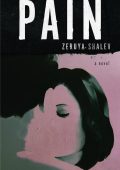

The 2019 Jan Michalski Prize has been awarded to Zeruya Shalev for her novel Douleur (Gallimard, 2017; published in English as Pain: A Novel, Other Press, 2019, translated from the Hebrew by Sondra Silverston).
The jury hailed ‘a dizzying novel in which the author explores the physiological and emotional territories of suffering, where the characters’ past and present are inextricably linked. Zeruya Shalev is a singular writer whose prose, both fluid and tense, sharp and poetic, gives us a narrative that is delicate in its violence, a tale of obstinate love involving several generations. A story of personal heartbreak, moving through layer upon layer as it adheres closely to the development of Israeli society, Shalev’s book also represents the novel as the scar tissue of a country.’
Born in 1959 at Kibbutz Kinneret in Galilee, the Israeli writer Zeruya Shalev lived in Tel Aviv and later Jerusalem, where she earned a degree in Bible studies. She currently lives and works in Haifa. Her writing includes both poetry, fiction and two children’s books. Her 1997 novel Love Life (Grove Atlantic, 2001, for the English translation) is the autopsy of a devastating and subversive affair between a young married woman and her father’s boyhood friend; it stirred up controversy in Israel and went on to be a great critical and commercial success internationally. Her next book, Husband and Wife (Grove Atlantic, 2003), was also a best seller. Seriously injured when a suicide bomber blew up a bus in January 2004 just as she was passing it, the author remained immobilized for several months before being able to return to her writing. There followed Thera (Toby Press, 2010), The Remains of Love (Bloomsbury, 2013), and finally Pain: A Novel (Other Press, 2019).
Zeruya Shalev’s work has been translated into over twenty languages and awarded a number of prestigious prizes, including the 2001 Corine International Book Prize, the 2012 Welt Literaturpreis from the German newspaper Die Welt, and the 2014 Prix Femina étranger. Her fiction readily explores the terrain – by turns light and dark – of human intimacy, the inflections of our family and love lives, and the clashes of different generations.
Zeruya Shalev is involved, moreover, in the apolitical and areligious civic movement Women Wage Peace.
Awarded the 2019 Jan Michalski Prize for its French translation, Zeruya Shalev’s latest book, Pain: A Novel, offers readers the dizzying and enchanting experience of an immersion in the inner world of Iris, the brilliant and devoted school principle in Jerusalem. Iris is in her forties and married to Micky, who has withdrawn into his online chess games. She is also the mother of two older children who are about to enter the world to fend for themselves. Her existence has come to a tipping point when, ten years after being seriously injured in a terrorist attack as she passed a bus just as it was blown up, Iris finds her physical pain has returned, the long-term aftermath of a deeply traumatic experience. She rediscovers, in the doctor she is consulting at the hospital’s pain clinic, the first great love of her life, Eitan, who had suddenly left her when she was seventeen. Thus, another, older pain is revived, that of grief and being abandoned. Iris and Eitan counteract that pain with the rebirth of desire and the temptation to abolish time by rekindling their incomplete passion. From this nodal point Shalev examines all the nuances of mood and consciousness of a human being who is at a crossroads. The book delves into the different layers of time in Iris’s life, her own childhood while her mother was losing her memory, and the childhood of her own children, while her twenty-one-year-old daughter is adrift, under the influence of a manipulative guru, and her son will soon be called up for his military service. Like a raging storm battering a skull from within, her instincts and urges collide with her social and family commitments as lines of parentage sway and strain, snag the ghosts of the past, and entangle the separate fates of the protagonists.
This sensitive portrait of a woman seeking balance and meaning encompasses a whole social landscape in which violence is seen from the inside. Although Zeruya Shalev has long steered her writing away from the Israeli-Palestinian context, Pain was the chance to explore with great subtlety the multiple impacts a politically rooted event has on a life – the better to return to what is universal in the human soul.
As the winner of the 2019 Jan Michalski Prize, Zeruya Shalev will receive CHF 50,000 in prize money as well as a work of art selected especially for her: Bird and Egg, a plaster piece by Kiki Smith, 2004

Pain,
Translated from the Hebrew by Sondra Silverston
Other Press, New-York, 2019
Proposed by Julien Berjeaut
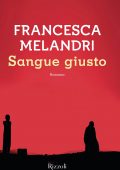
Sangue Giusto,
Rizzoli, Roma, 2017
Proposed by Andrey Kurkov
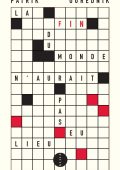
La fin du monde n’aurait pas eu lieu,
Editions Allia, Paris, 2017
Proposed by Tomasz Różycki
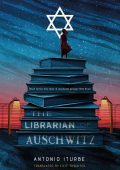
The Librarian of Auschwitz,
Translated by Lilit Thwaites
Henry Holt & Co, New York, 2017
Proposed by Alicia Giménez Bartlett

Pain,
Translated from the Hebrew by Sondra Silverston
Other Press, New-York, 2019
Proposed by Julien Berjeaut
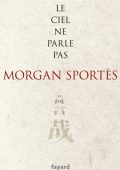
Le ciel ne parle pas,
Fayard, Paris, 2017
Proposed by Benoît Duteurtre

Sangue Giusto,
Rizzoli, Roma, 2017
Proposed by Andrey Kurkov
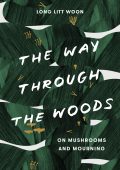
The Way Through The Woods: Of Mushrooms and Mourning
Translated by Barbara J Haveland
Spiegel & Grau, New York, July 2019
Proposed by Vera Michalski-Hoffmann

La fin du monde n’aurait pas eu lieu,
Editions Allia, Paris, 2017
Proposed by Tomasz Różycki
